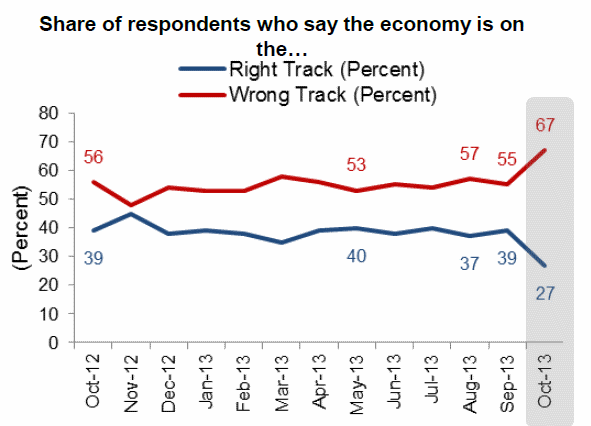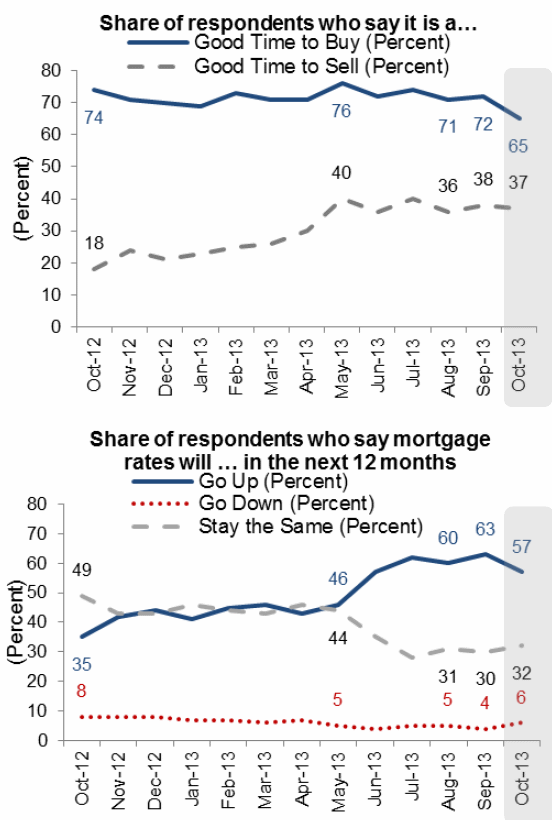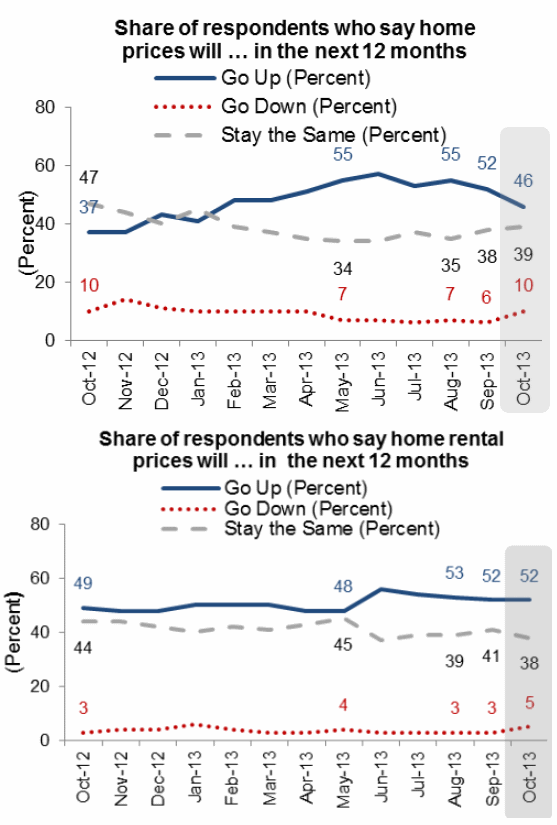The October National Housing Survey was conducted by Fannie Mae during a period that coincided with the federal government shutdown and the debt ceiling debate. Fannie Mae spokesperson Pet Bakel said today that the dual crisis appears to have taken a toll on American's outlook toward the economy and housing market.
Bakel said the most notable take-away from the survey was the huge increase in the gap between those who think the economy is on the right track and those who think it is headed in the wrong direction. Wrong track answers soared by 12 percentage points from September levels to 67 percent. This resulted in a 30 percentage point gap between the two responses and was the largest month-over-month change since the survey was initiated in 2010.

The share of people who said their personal financial situation would get worse in the next 12 months hit a survey high of 22 percent while those who reported significantly higher household income than 12 months ago fell to 22 points to 20. One percent more reported significant higher household expenses than a year earlier.
The Housing Survey is conducted among about 1,000 homeowners and renters who are asked by phone for responses to around 100 question intended to assess their attitudes toward owning and renting a home, home and rental price changes, homeownership distress, the economy, household finances, and overall consumer confidence
Homeowners also cooled on whether it is a good time to buy a house. Affirmative responses to that question fell to 65 percent, another survey low, from 72 percent. Respondents who thought it was a good time to sell also declined from 38 to 37 percent. Fewer Americans expect mortgage rates to increase over the next year, decreasing to 57 percent from 63 percent.

The percentage of people who expect homes to appreciate over the next 12 months fell by 4 percentage points to 46 percent and those who expect price declines rose by those same 4 points to 10 percent. The average price change expectation was 2.9 percent, 0.2 less than in September. Fifty two percent of respondents expect rents to rise, about the same as last month, but the average rent increase anticipated rose by 1 percent to 4.4 percent, a survey high.

"Housing market sentiment has clearly suffered in the wake of the recent government shutdown and debt ceiling debate," said Doug Duncan, senior vice president and chief economist at Fannie Mae. "In October, we saw attitudes toward both the economy and the current buying environment experience their largest one-month drops in the survey's three-year history. While this decline in consumer optimism may portend a slowing of the housing recovery, supply constraint data suggest that we are likely to see continued positive growth in home prices. That being said, October's survey results suggest that consumer attitudes are highly responsive to ongoing debate and decision-making in Washington. Three key budget and debt ceiling dates loom in December, January, and February. The handling of each will likely play a key role in determining the pace and timing of any recovery in consumer sentiment."







